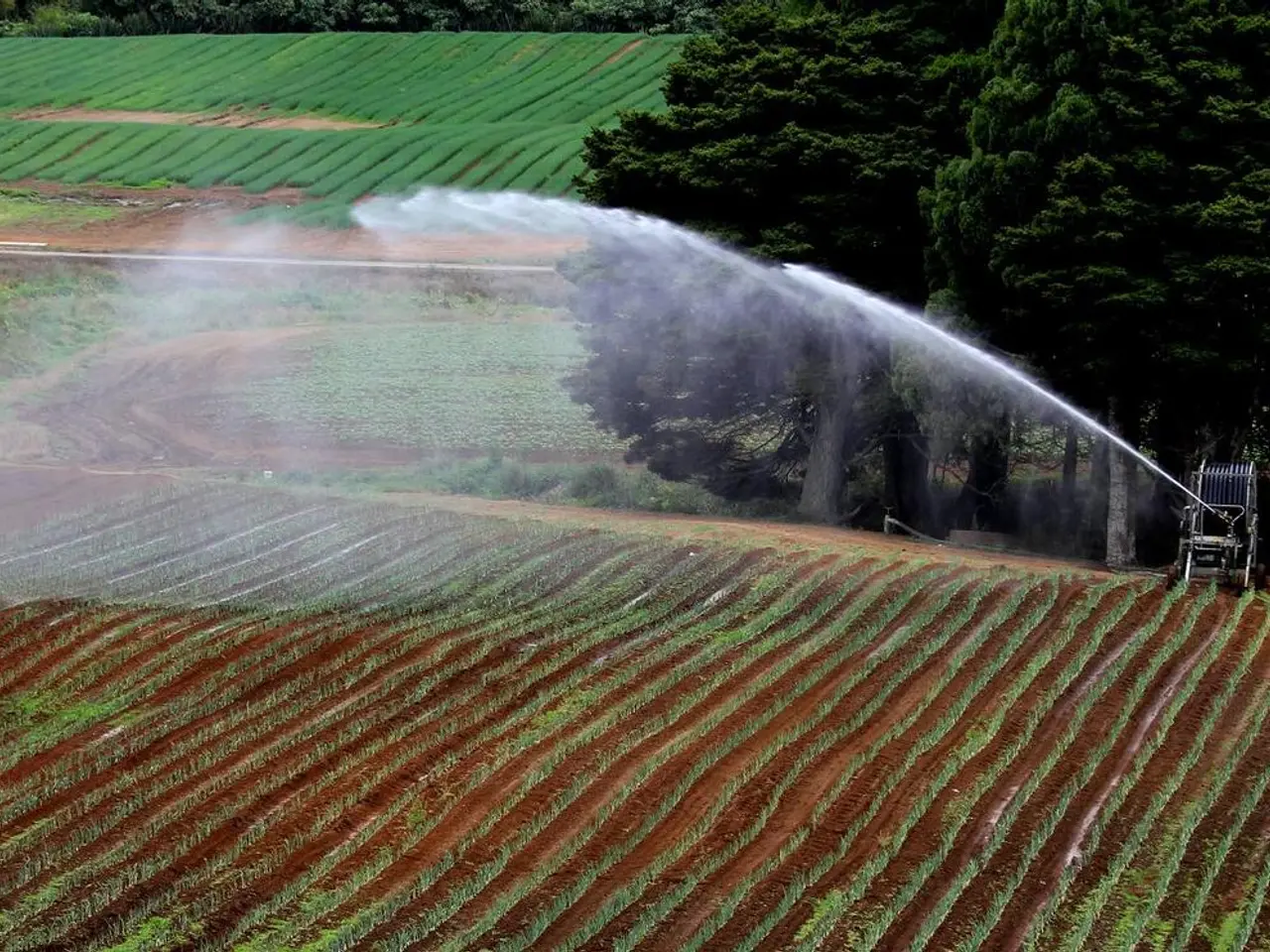Nepal's Initiative in Organic Agriculture: Cultivating Sustainable Crops
In the picturesque town of Mahuli, Saptaari district, eastern Terai, Nepal, the Spiral Farm House is making a significant impact on local agriculture. Owned by Sudarshan Chaudhari, the farm is leading the charge towards organic and biodynamic farming, inspiring local farmers to transition away from chemical-based methods.
Chaudhary is not only a farmer but also a teacher, training young farmers in Saptaari and surrounding areas in biodynamic farming methods. One such student is Sumana Kumari Mirda, a 24-year-old business management student who helps her parents grow rice, lentils, and vegetables using biodynamic farming techniques taught by Chaudhary.
The farm's practices reflect the key principles of biodynamic farming, treating the farm as a living, self-sustaining system interconnected with the environment. Composting, hand cultivation, biodiversity enhancement, and minimal use of external inputs are some of the methods employed at Spiral Farm House.
The compost at Spiral Farm House is made from various organic materials, including cow dung, horns, bones, silica, straw, branches, dry leaves, and plants. Specific herbal, mineral, and animal-based preparations are also used to stimulate nutrient cycles and soil life. For example, Preparation 500 (horn manure) is used to enhance soil health, while others are added to compost to regulate decomposition and enrich it.
Sukhi Lal, a retiree from the Saptaari district, learned biodynamic farming at Spiral Farm and now grows biodynamic vegetables that fetch a higher price than those grown with chemical fertilizers. The quality of Sukhi Lal's farm's soil has significantly improved with the application of biodynamic methods.
The benefits of biodynamic farming are numerous. It improves soil structure and organic matter content, enhances nutrient cycling and microbial life, increases crop yields and nutritional quality, and strengthens carbon sequestration within soils. Furthermore, it provides greater ecosystem services such as pollination and natural pest control.
A study published by Cambridge University Press shows that soil quality on biodynamic farms significantly surpasses conventional farming. It is crucial to expand biodynamic farming in Nepal and make biodynamic products more accessible.
The Krishna Gurung Kevin Rohan Memorial Eco Foundation promotes biodynamic farming practices, with over 5000 farms certified in 60 countries worldwide. As more farmers adopt these practices, the future of sustainable agriculture in Nepal looks promising.
[1] Biodynamic Agriculture: An Introduction to the Preparations and Practices https://www.biodynamics.com/biodynamic-agriculture/ [2] Biodynamic Farming and Gardening: Preparation and Process https://www.biodynamics.com/biodynamic-farming-and-gardening/ [3] Biodynamic Agriculture: Principles and Practices https://www.biodynamics.com/biodynamic-agriculture/principles-and-practices/ [4] Biodynamic Farming: A Holistic Approach to Agriculture https://www.biodynamics.com/biodynamic-farming/ [5] Biodynamic Farming: The Future of Sustainable Agriculture https://www.biodynamics.com/biodynamic-farming/the-future-of-sustainable-agriculture/
Science plays a significant role in the environmental-science field, as demonstrated by the practices at Spiral Farm House in Nepal. The farm's biodynamic farming methods, such as composting and minimal use of external inputs, are crucial for climate-change mitigation and contribute to sustainable agricultural education-and-self-development, inspiring farmers like Sumana Kumari Mirda and Sukhi Lal.




